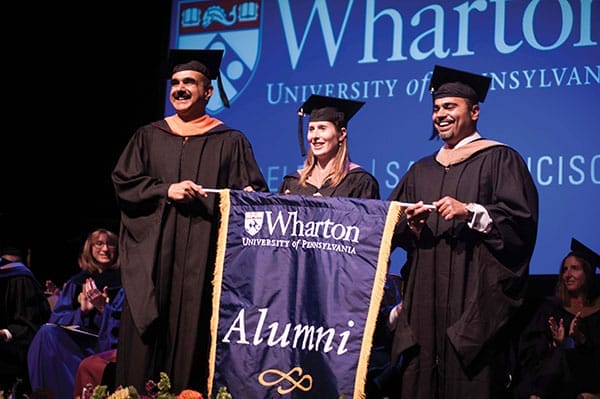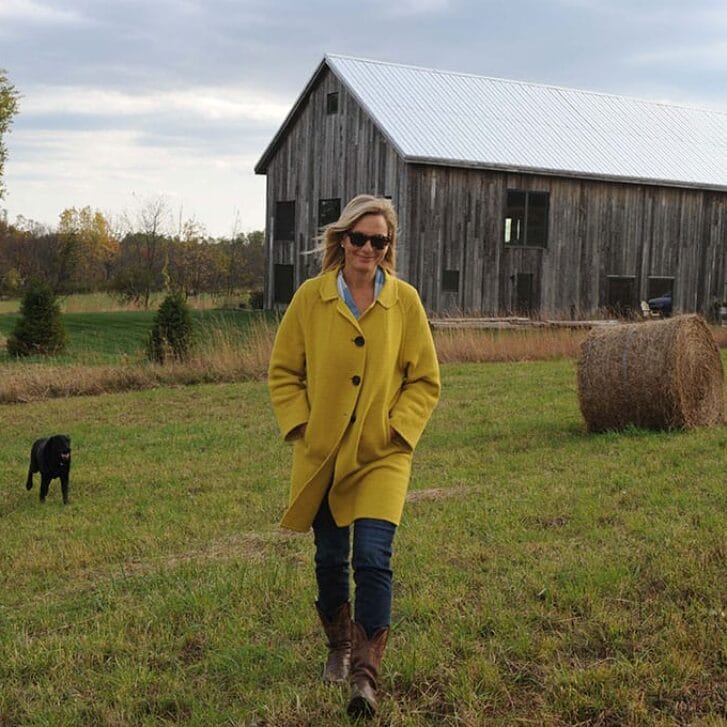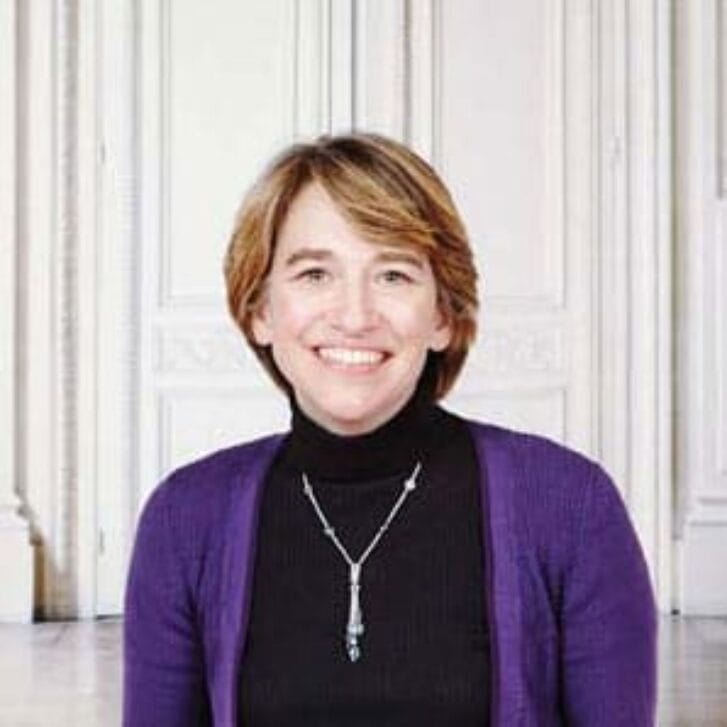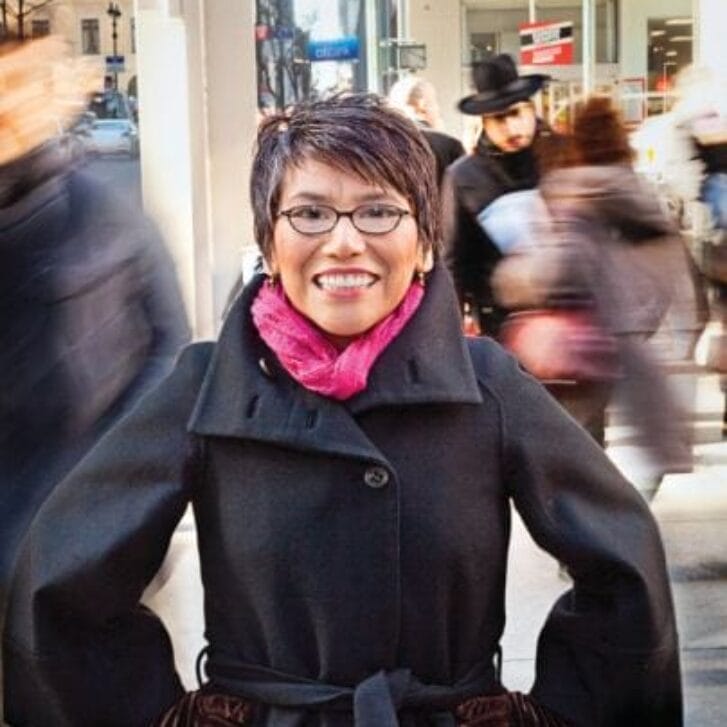Last year’s MBA Commencement at Wharton | San Francisco will linger for a lifetime in the memories of graduates, their families and other attendees. Beyond the usual snapshots and sound bites of goodbyes, caps and gowns, and hoots of joy, attendees will retain the wisdom shared by Commencement speaker Inder Sidhu, WG’91, senior vice president of strategy, worldwide operations, for Cisco Systems. We were so touched by his message that we decided to reprint his speech in its entirety:
Thank You, Dean Robertson. Congratulations, graduates, family and friends.
For a Wharton MBA graduate, there is no greater honor than to speak at a Wharton graduation. Thank You.
Today, I’d like to share with you some of stories from my life.
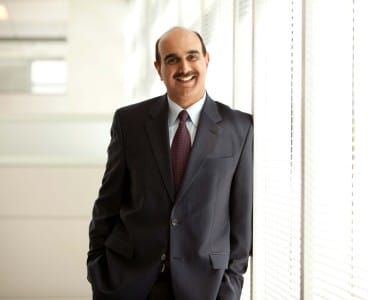 They don’t have anything to do with spreadsheets, PowerPoint presentations or case studies. In fact, they don’t include anything you typically acquire at business school. But they are about things that will be important to you just the same.
They don’t have anything to do with spreadsheets, PowerPoint presentations or case studies. In fact, they don’t include anything you typically acquire at business school. But they are about things that will be important to you just the same.
My Wharton MBA gave me the knowledge and skills that I use every single day. Thanks to Wharton, I am able to think with better clarity, communicate with more authority and act with greater competency than I otherwise could.
But there is more to the journey, and that is what I’d like to talk about today.
Watch it: The full Wharton Commencement speech from Inder Sidhu, WG’91.
When I was 21, I graduated from college in India with an engineering degree. At that time, no one from either side of my family had ever gone to college to study engineering. Though I had a couple of good job offers when I graduated, I wanted to further my studies in the U.S.
Unfamiliar with how to go about this, I applied to about a dozen universities. Fortunately, I was accepted to several. But there was a problem. I had no way to pay for my dreams.
Though I applied for financial aid, my applications were not received in time to qualify. When my father and I discussed our options, my hopes began to dim. First-year college expenses in the U.S. were three times my father’s annual salary. While I believed further study in the U.S. was the right path for me, there was no way that my family of modest means could afford it. It was, in a word, “impossible.”
Until my mother found out.
“The word ‘impossible’ is in the dictionary of fools,” she said. “If you have the courage, you can do anything.”
“We will mortgage the house,” she declared, “and I’ll sell all my jewelry!”
If you know anything about Indian women, you know that when they offer to sell their jewelry, it can only mean one of two things: they are really serious— or they have no jewelry.
My mother was serious. I don’t fully understand what loans she and my father took to afford my education. All I know is that a few months after she made that bold statement, I boarded a plane, incidentally for the first time in my life, to go study in America.
In one pocket I carried a bank draft made out to the University for my first year of tuition. In the other pocket was the rest of my money—all $21 of it.

Soon after landing at the University, I managed to get a small research job. I never used the bank draft.
Years later I found out that on that day when my mother offered to sell her jewelry—she really didn’t have much jewelry to sell. She just had a lot of courage, and that is the gift she gave me. And to me, that is far more valuable than all the jewelry in the world.
I’ve drawn on that courage many times.
1990 was a tough year for the economy. I was in the middle of my MBA at Wharton. As summer break approached, I needed a job.
Though I couldn’t do anything about the economy, I was determined to land the best position possible. And thanks to what I learned at Wharton, I had complete clarity about what I wanted to do: work in management consulting. My top choice was Bain & Company. With a roster of clients that included many of the world’s top companies, Bain was one of the world’s premier management consulting organizations. It was a dream destination for many of us at Wharton. But getting in wasn’t easy.
Bain offered first-round interviews to 225 students from Wharton’s pool of about 800. Afterwards, just 15 would advance for a second-round interview in Boston. From there, Bain planned to hire just two interns.
While the odds weren’t good, I was hopeful, nonetheless. Call it hubris or naïveté, but I honestly thought that having a degree from one of India’s finest engineering schools, relevant work experience, and top grades from Wharton would distinguish me from other candidates.
But it didn’t.
When Bain posted the names of the 225 students it wanted to interview, my name wasn’t on the list. Dejected, I figured my best shot at getting hired by one of the top companies in management consulting was over before it started.
Then I remembered what my mother said: “impossible is only in the dictionary of fools.” “If you have the courage, you can do anything,” I reminded myself.
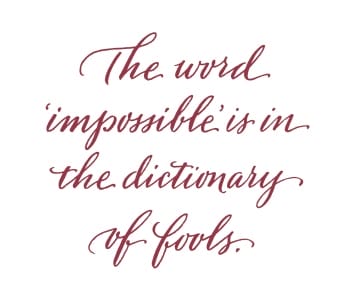
Inspired, I called Bain and asked that they give me one last consideration. No, I was firmly told, “We have our procedures, and we follow them.”
So I showed up at the hotel where interviews were underway. “Just give me five minutes,” I pleaded. Once again, I was rebuffed—sternly. Refusing to give up— even if it meant making a fool of myself in front of my classmates and a potential employer—I sought out the top recruiter and asked if he would chat with me between interviews. “My calendar is full, and there’s simply no time in the day for that,” he said.
Despite being told “no” several times, I waited outside the interviewer’s room all day. After his final meeting, he emerged in a hurry, politely apologized one last time and said he had to take a cab to the airport. “Let me ride with you,” I pleaded. “We can talk on the way.”
Exhausted after a day of interviews, he relented.
I don’t remember what I said exactly, but it must have made an impact. When the list of the 15 finalists was posted, my name was on it. Better still, after the last round of interviews in Boston, I was one of the two people offered a job.
I’d like to tell you it was due to my focus and sense of purpose. No doubt the clarity that Wharton provided helped. But what really mattered that day was the courage that I got from my mother. The same courage that she showed when she took a chance, against the odds, and put me on a plane to the U.S.
In your journey, there will be times when you will be faced with making a choice, with taking a chance. The numbers will point one way. But your heart may say something different. In those moments, have the courage to take a chance. Sometimes on yourself. And sometimes on someone who looks and feels very different than you.
I stand before you today because someone, somewhere had the courage, and took a chance on me.
My next story is about caring.
A few years ago, my children were in elementary school. My wife Deepna, who is here today, and I were friends with many families who had children in the same grades. One day I dropped by the school at pick-up time and noticed something interesting: Virtually every child greeted Deepna with a hearty “hi,” “hello” or familiar hug. It was as if they had known her all their lives. I also noticed the children didn’t do this with any of the other moms or dads, just Deepna.
I wondered why.
And then I saw it.
When a 6-year old child approached her, Deepna kneeled all the way down to the ground till she was face-to-face with the child, looking straight into his eyes before she started talking.
I also noticed that she was the only adult who made the effort to do this. And she did it for each and every child. She knew their names, their personalities, what they liked and what they didn’t.
She cared.
A 6-year old child may not know a lot. But they know when someone cares.
And when you care for someone, they don’t forget.
I still remember February 10, 1999. It was 14 years ago, and yet it still seems like yesterday. That day I got a call from India. My brother had just been killed in a car accident.
We were very close. He was 42, married, with two small children. My parents’ first child, he was the light of their lives. For them, it was as if everything ended that day.
After 23 hours of flying, and 6 hours of driving, I reached my parents’ home in a remote town in India. They looked like they had aged 10 years overnight. I did my best to console them.
The next morning, my father pointed me to the only vase of flowers in the room. I picked up the card next to the flowers. It read: “During this most difficult time in your lives, please know that we are with you, and will be always.”
It was signed, “John Chambers, and the Cisco family.”
A small act of kindness from a CEO towards an employee? Perhaps. But for my family, it was so much more. For my grieving father, it was a touch of compassion and a source of strength when he needed it most. It was act of caring— one that I will never forget.
A few days later, as I was preparing to return to the U.S., my father pulled me aside and said something that I still remember: “I’m happy that you work for a successful company,” he said. “But I’m proud that you work for someone who cares.”
I know that none of this counts when Fortune Magazine compiles its list of the “Most Admired Companies,” or when Harvard Business Review publishes its list of the “Best- Performing CEOs.”
But from where I stand, it counts.
My last story is about curiosity.
My children, Sonia, Sabrina and Neal always seem to want to try new things. Like many young people, Sonia, our oldest child, has an inquisitive, open mind. But at 17, she’s also someone with many friends and social interests. With Sonia being a second semester senior in high school, my wife and I worried she might begin to cruise academically—especially since she had already been accepted to her top-choice university.
Instead of cruise control, however, Sonia seems to have gone into overdrive. Despite her primary focus on Biology and Chemistry, I was surprised a couple of months ago to find that she had suddenly developed a fascination for business. She was on the Internet researching business topics, and talking to her classmates who were in business clubs. A few days ago, she approached my wife and said, “I need a business suit.”
A business suit? I thought she would want something from Abercrombie & Fitch or Hollister, not Ann Taylor. When I asked why, she told me she had decided to participate in a state-wide business competition for high school students. This is someone who is 17 years old and hasn’t taken a single business course or participated in a business-oriented club. Ever. Suddenly, she’s Sheryl Sandberg.
What happened? I wondered.
“I don’t know,” she said, “I guess I want to try new things and find out.”
Always curious. Always open minded. Trying new things. That’s Sonia. And thanks to her disposition, she’s always been able to acquire new skills and abilities. And that business competition she needed the suit for? Guess what: she placed second in the State of California out of 4,500 students.
Am I proud? You bet. But I’ve also learned something. Each time she demonstrates a new interest or acquires a new skill, she shows me the value of curiosity.
We all like to think of ourselves as open minded and curious. But are we? I was put to the test three years ago when I decided to write a book based on my business experiences. I worked closely with two people, T.C. Doyle and Sarah Halper. They often had different points of view than mine. And they were never afraid to express them. Even if I disagreed, I always listened to them. And there was never a day that I didn’t value what they said.
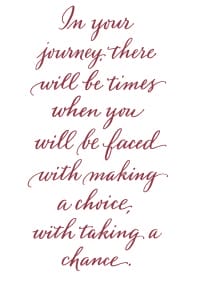
Sonia made me curious about social media. Before the publication of my book, I thought Twitter, Facebook and blogging were things my daughter and her friends did, not working professionals like me. T.C. and Sarah insisted otherwise.
They helped me set up accounts, and then helped me to write blogs, send out tweets and cultivate an online following. Suddenly, I found myself connecting with thousands of people instantly. When I did, Forbes, Fortune, The Economist, The Washington Post, The Huffington Post and more opened their doors to me, which allowed me to blog and engage with an even wider audience.
Although my book was well-received, it was a one-way monologue until I learned how to turn it into a two-way conversation with people everywhere. I’m glad I was curious enough, and open enough to try something outside my comfort zone.
Thanks to the blogs and tweets and online dialogs, word spread quickly. Three months after publication, our book, Doing Both, made every bestseller list in the country, including the one published by The New York Times.
My daughter Sonia’s example of always being curious had opened my mind to a whole new field. And being curious had paid off.
Today is your graduation. But it’s also your commencement—the start of the journey for the rest of your life.
Wharton has given you great skills. But as you begin this journey, there are other traits that you will need to draw upon.
The debates and discourses, the cases and courses, the spreadsheets and statistics have equipped you to address any business situation. Wharton has given you the clarity to determine what the right decision is. But no business school can give you the courage to make that decision.
That must come from elsewhere.
Wharton has empowered you with insight in your interactions, confidence in your conversations, polish in your presentations. Wharton has taught you to communicate. But no business school can teach you to care.
That must come from elsewhere.
Wharton has provided you engaging experiences, powerful perspectives, invaluable insights. Wharton has made you competent. But no business school can teach you to be curious.
That must come from elsewhere.
Wharton has the best faculty on the planet and although they have taught you much, you will find your courage, caring and curiosity in your own journey.
I found courage in the words of my mother, caring in the actions of my wife, and curiosity in the spirit of my daughter. Each has taught me something; and that has made all the difference in my journey.

Several years from now, some of you will have the honor of speaking to the graduating class at your alma mater, about your journey. And when you reflect back, you will likely find that your best stories are not about clarity, communications and competence. Instead, they will be stories about the courage to do the right thing, about caring when it wasn’t required, about curiosity to learn about the world and change it for the better. These stories won’t come from your head; they will be stories from your heart.
And they will be the stories that no one will forget.
Three weeks from today, our first child Sonia will graduate from high school. This fall she will start as a freshman in the College of Arts & Sciences at Penn. We are very happy that she will be at a great university where she will learn a lot.
When we drop her off in Philadelphia this August, one week after her 18th birthday, our hearts will be a bit heavier, and our home will be a lot quieter.
But as she embarks on the journey of her life as an adult, we will cheer from the sidelines, and wish for her that extra something that will last her a lifetime: her own curiosity, her mother’s caring, and her grandmother’s courage.
As you begin your journey, for each of you, I wish no less.
Good luck, and Godspeed.




















